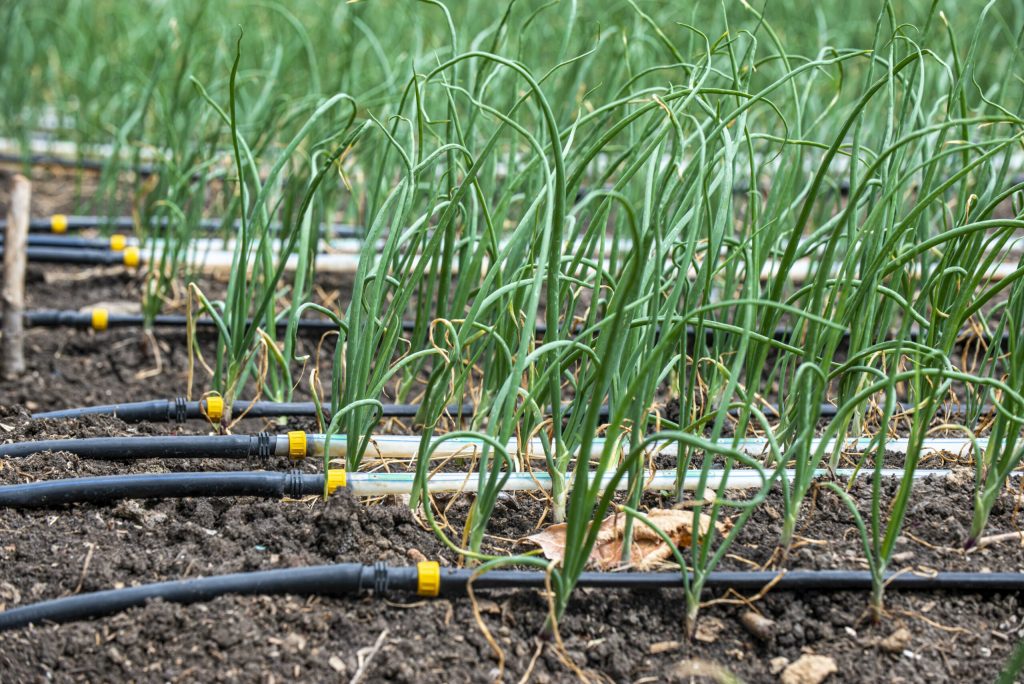
Are you in need of in-depth knowledge on onion and garlic production? If yes, we are a call away. Contact us for: Onion seedlings, Garlic seedlings, Germinated garlic cloves, Farm planning services, Soil testing, training on onion and garlic growing, Drip irrigation installation and maintenance, Agronomic support, Onion and Garlic value pack and Farm management. For free consultation, placing orders or booking a visit with an agronomist, please contact us via Call or what’s app +254703982228, Email: Info@oniondoctor.co.ke. You can also check out our social media handles for daily updates on TikTok: https://www.tiktok.com/@oniondoctorke?_t=ZM-8wmsTu0qumO&_r=1 Instagram: https://www.instagram.com/oniondoctorke?igsh=MTVoaHF3aWUydTJzaQ==Facebook:https://www.facebook.com/share/16SwgYn2dG/ Youtube:https://youtube.com/@oniondoctorke?si=u5Jnd-r0qU9UDYqL and Twitter: https://x.com/OnionDoctorKe?t=FR3JXlS_oN1vjjUgAtfyzg&s=09
Onion farming in Kenya has become an increasingly popular venture for both domestic and commercial farmers. The high market demand for onion bulbs motivates many farmers to pursue this crop. However, achieving high production levels often eludes many due to common farming malpractices. At Onion Doctor, we offer innovative solutions and support to ensure farmers maximize yields, including the use of drip irrigation systems and expert agronomic advice.
Benefits of Onion Farming in Kenya
Onions are a staple in Kenyan cuisine, making them a high-demand vegetable throughout the year. They are also nutrient-rich and low in calories, providing health benefits such as lowering blood pressure. With the right farming techniques, growing onions in Kenya can be a profitable venture, and Onion Doctor is here to guide you through the process.
Popular Onion Varieties in Kenya
Kenya is ideal for growing various types of onions, including Red Creole, Red Pinny, Jambar 1, and Red Bombay. Among these, Red Creole is the most popular for its high yield and adaptability to Kenya’s climate. Whether you’re growing onions for local markets or export, Onion Doctor provides high-quality onion seedlings and agronomic support for the best results.
Ideal Conditions for Onion Farming
Successful onion farming requires specific growing conditions:
- Soil: Onions thrive in loose, well-drained soils with a pH of 6.0 to 7.0. These conditions support quick root development and water retention, essential for optimal bulb growth.
- Temperature: Onions grow best in temperatures ranging from 15 to 30 degrees Celsius, which can be achieved year-round with the right irrigation methods.
- Land Preparation: Opt for slightly flat land with good drainage, as waterlogging can reduce yields. Raised beds or trenches are useful for preventing water accumulation during rainy seasons.
At Onion Doctor, we emphasize the importance of soil testing and proper land preparation to ensure your onion farm is set up for success.
Drip Irrigation: A Game Changer for Onion Farming
Onions require consistent and precise watering, which makes drip irrigation the best method for ensuring water efficiency and high yields. Onion Doctor offers affordable drip irrigation kits tailored to meet the specific needs of onion farmers. The drip system components include:
- Drip tapes
- Drip connectors
- Valves
- Mainline and sub-mainline pipes
- Water filters
- Water storage tanks
Setting up a drip irrigation system on flat land is highly recommended for ensuring uniform water distribution across your farm.
Step-by-Step Guide to Starting Onion Seedlings
Starting your own onion seedlings can be cost-effective and ensure better control over the quality. Here’s a DIY guide for seed propagation:
- Clear your land and prepare seedling beds.
- Cultivate the soil to a depth of 4 inches.
- Raise the seedling beds to 30 cm and leave a 1-meter walking space between them.
- Propagate seeds and cover the beds with mulch or a shade net.
- Irrigate regularly until the seedlings germinate, usually within a week.
- Once germinated, remove the mulch to allow for sunlight and proper aeration.
At Onion Doctor, we provide high-quality onion seedlings and expert guidance on nursery management to help you succeed from the start.
Transplanting and Fertilization
After 4–6 weeks of growth, onion seedlings are ready for transplanting. Ideal planting holes should be 15 cm deep and spaced 20 cm apart. To enhance soil fertility, incorporate DAP fertilizer during transplanting for optimal growth and bulb formation.
Overcoming Challenges in Onion Farming
While onion farming offers great potential, it also comes with challenges. Here are the most common issues and how to address them:
- Lack of Water: Onions require adequate water for growth, especially during the bulb formation stage. Drip irrigation offers a water-efficient solution that ensures each plant gets the right amount of water.
- Excess Water: Overwatering can stunt onion growth. Raised beds or trenches can help avoid waterlogging and ensure proper drainage.
- Pests and Diseases: Weeds, pests, and diseases such as thrips, nematodes, and leaf miners are common. Regular weeding and the use of appropriate pesticides will keep your crop healthy. At Onion Doctor, we provide tailored pest and disease control programs.
Onion Doctor: Your Partner in Onion Farming Success
At Onion Doctor, our goal is to help farmers across Kenya achieve high yields and maximize profits through sustainable practices. Our services include high-quality onion seedlings, drip irrigation kits, agronomic visits, and market linkages. Whether you are growing onions for local or export markets, Onion Doctor is here to support you every step of the way.